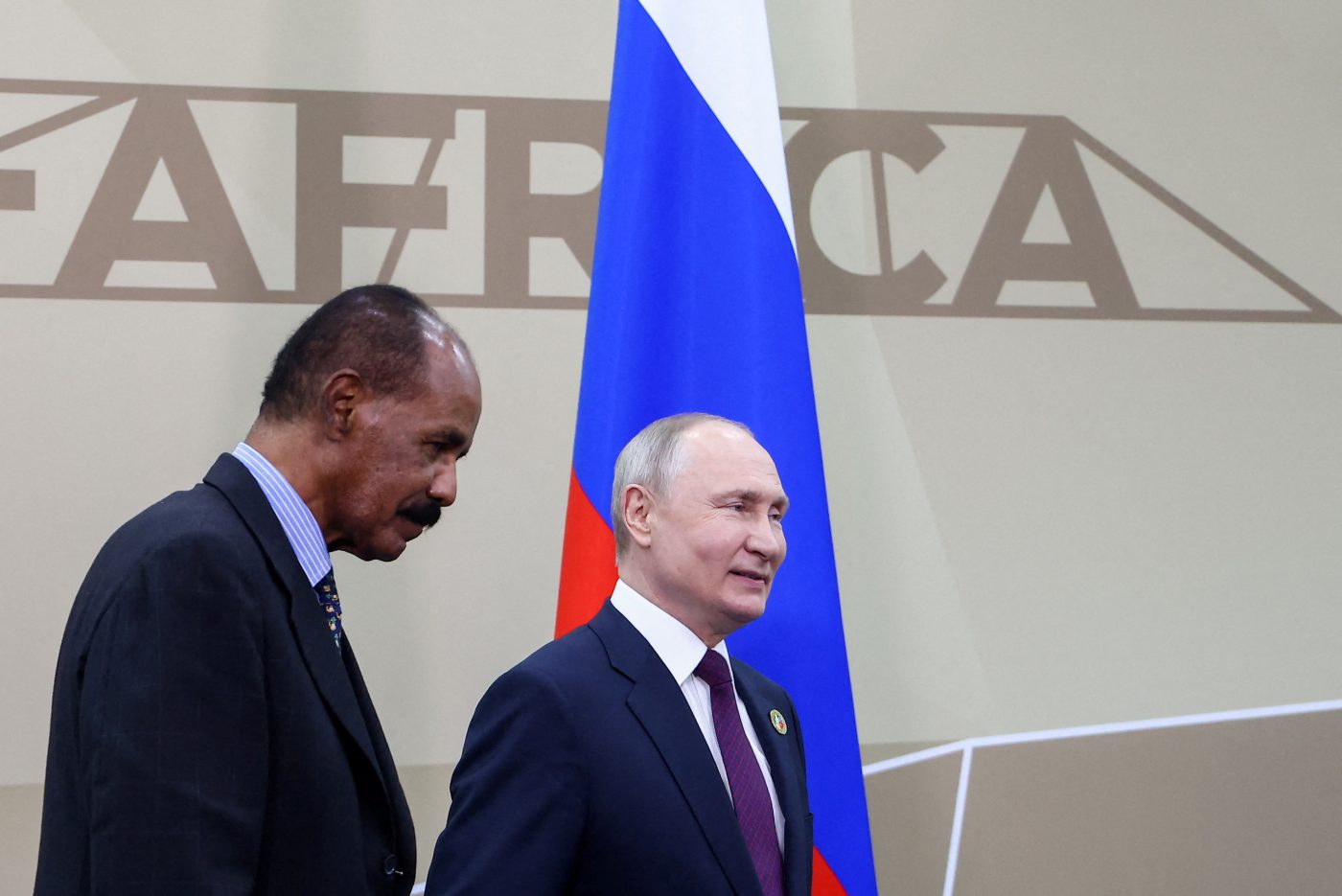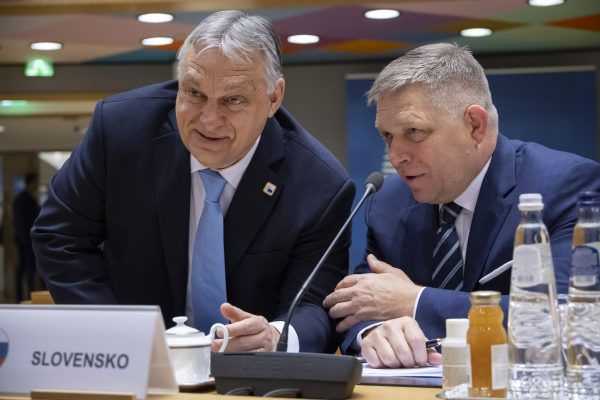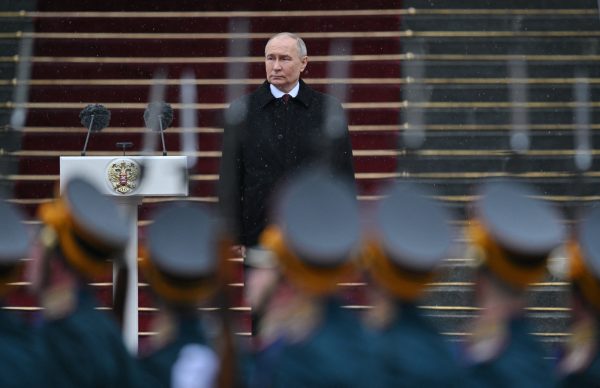You cannot lead an armed rebellion against your government one month, and then join a high-level summit of the administration you tried to overthrow just a few weeks later. Unless you’re Yevgeny Prigozhin, that is.
The mercurial mercenary leader, who was ostensibly exiled to Belarus following his failed putsch in June, was seen in St Petersburg, on July 27 meeting with Ambassador Freddy Mapouka, advisor to the president of the Central African Republic (CAR).
The meeting occurred just 20 miles away from the city’s Expoforum Convention Center, the site of the second Russia-Africa Summit where leaders from across the continent were meeting to discuss closer economic and military cooperation with Russia.
Russia may have descended into utter chaos during the Prigozhin mutiny, but even amid the aftershocks, the Kremlin is keen to make some things clear. Foremost is that it cares very little about grain supplies to the poor of Africa (terminating shipments of Ukrainian grain on July 17 and reimposing its blockade), but cares a great deal about the continent’s resources.
Russia has used Prigozhin’s Wagner Group to maraud across the continent, orchestrating gems-for-gunmen deals with Africa’s ruling elite. It maintains a presence in several countries including Libya, the Central African Republic, Sudan, and Mali — where its gunmen have been accused of massacres and other human rights abuses while channeling gold, diamonds, and other commodities for sale outside the country.
The system was described in a 2022 CSIS report as providing “partnerships with resource-rich states with weak governance in order to trade paramilitary, combat, intelligence, disinformation, and other security services for financial gain, most frequently through mining concessions, and to pursue Russian interests on the continent.” In other words to pursue the narrow interests of various African rulers with a ruthless indifference to the consequences, and in return for lots of money.
Prigozhin has expressed his readiness to increase operations across the continent, not least in Niger where the elected, Western-backed head of state was removed by a military junta in July. As mysteriously available Russian flags appeared in the streets of the capital, Niamey, concerns quickly grew that Russia was again moving in, this time to grab the abundant uranium and gold.
The success of Russia’s mercenary diplomacy is in stark contrast to its more formal efforts. Just 17 African heads of state and government attended the St Petersburg summit, compared with the 43 who attended the previous event in 2019. Turnout was marred by Putin’s grain decision, which Kenya called a stab in the back.
Vladimir Putin’s willingness to put millions at risk of starvation and hunger in an effort to right an imagined wrong in Ukraine must make clear to even the most pro-Russian Africans that their welfare is of no interest to him. The images of smiling Russians and Africans in St Petersburg are a mask; the face of Kremlin policy toward the continent is Prigozhin’s.
The core tenets of the Kremlin’s Africa playbook remain the same: disrupt, denounce, and — most importantly — deplete: disrupt regional stability through election interference and security assistance for autocrats, denounce Western influence through disinformation operations and by promoting Russia as an “alternative to the West,” and deplete the continent’s resources.
The war made Wagner’s African activities still more important. A heavily sanctioned Russia is desperate for goods to aid its war machine; tradeable commodities that can be turned into cash by intermediaries are far more valuable now than before its all-out invasion of Ukraine.
The Kremlin and its agents are therefore playing for high stakes and are very probably willing to up the ante. On August 6, it was reported that the Niger junta had asked for Wagner’s assistance and one day later received a visit from acting Deputy Secretary of State Victoria Nuland, in part to explain the consequences of such a move.
Wagner is already present in neighboring Mali where it aids another junta. The group’s bloody tactics there have brought the country to the brink of complete collapse and a likely takeover by hardened Islamists. Its involvement in the region could also help to spark a wider conflict in West Africa between democratic Nigeria and its Economic Community of West African States (ECOWAS) allies and military-led regimes. That prospect might even be welcomed by Prigozhin and the Kremlin given the chaos it would bring as the West tried to respond. (The US has around 1,000 troops in the country and France around 1,500.)
The US and UK authorities have done well thus far in sanctioning Wagner’s Africa expansion, with near-simultaneous designations on Malian officials working with Wagner announced in July. They may soon have to target Niger’s junta leaders too.
But sanctions alone will not stop this. The US is now tackling some of the key issues in its new beneficial ownership regulations but this must be applied much more broadly by democratic governments bearing down on criminals and authoritarian catspaws. Wagner must be stripped of its shadow network of companies, vessels, and aircraft. Until then, the Kremlin will continue to peddle bullets over bread.
Michael Albanese is a practitioner in the international development field, where he supports USG-funded democracy promotion missions globally. Previously, he worked at both the Atlantic Council and the Center for European Policy Analysis (CEPA).
Europe’s Edge is CEPA’s online journal covering critical topics on the foreign policy docket across Europe and North America. All opinions are those of the author and do not necessarily represent the position or views of the institutions they represent or the Center for European Policy Analysis.





